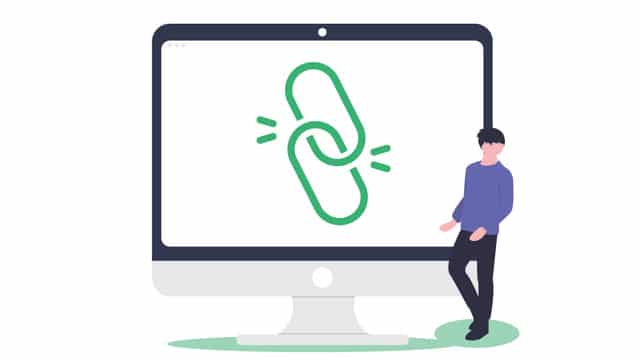Internal linking is a part of SEO that is often overlooked.
However, it’s extremely important, and an essential part of every successful SEO campaign.
Throughout this guide you will learn strategic best practices for SEO internal linking and how it can improve website performance.
What Is Internal Linking?
Internal linking is the process of linking one page from your website to another page within your website. This is why it’s called “internal”. A link that is linking to a page on another website would be an external link.
Every website should have internal links, as they are essential for various reasons.
Why Are These Links Important?
Below we’ve covered the top 3 reasons why internal linking is important.
1. Helps Keep Users On Your Site
Keeping users on your website is always good. Internal linking helps you do exactly that. If your pages are not internally linked to other pages, your visitors will leave as there aren’t any options to stay on your sites.
One metric you could use to monitor this would be your bounce rate.
By having these links on your pages, you are giving the user the option to visit another page within your website if they are interested in doing so. From a user experience point of view, this is great because if you are interested in a topic or business, you’ll want to learn more.
Internal links make it easier and more convenient for the user to learn more.
2. Helps Search Engines Crawl & Understand Your Site
Another reason why internal links are important is because of search engines. They help search engines crawl and understand your site as links are what they follow. To help the crawlers find all of our pages, we need to make it as easy as possible with a good internal links structure.
You can also use internal links to signify to Google which pages are important. If one of your pages has lots of internal links going to it, it signifies to Google that you value that particular page as you want your visitors to see it.
Additionally, it also helps Google and other search engines understand what your pages are about. For example on our blog, we mainly cover web design and SEO. By internally linking the SEO posts to each other, it shows search engines that those posts are about SEO.
This then increases relevance between our blog posts.
Related Article: What Is Technical SEO?
3. It Passes Authority Through Your Site
While they aren’t quite as powerful as links from other websites, internal links still help pass on the authority from one page to another.
This means you can strategically pass the authority from one page on your site to another. For example, if you would have one page that has a lot of external links pointing to it, you could pass a small amount of that authority on to another page through an internal link.
This would help the other page that you link to rank higher.
Internal Links FAQs
Lastly, we just wanted to cover some frequently asked questions about internal links.
Should You Internally Link As Much As Possible?
No. If you were to internally link as much as possible, this would waste the authority that it passes on. Instead, we recommend sticking to the links that matter most, and ones that improve the user experience. This could be links that explain a topic or service in more detail, or when you are looking to pass some authority from one page to another.
Each page also only has a limited amount of authority that it passes on. If you internally link as much as possible there would be a much smaller amount passed on to each page. Plus, you’re less valuable pages would receive the same amount as your more important pages.
What Else Should I Be Aware Of When Using Internal Links?
Your anchor text. Google has said that they aren’t too concerned with the anchor text of internal links. However, you still don’t want to overdo it. In their guidelines, they recommend using anchor text that describes the page you’re linking to.
When Should I Use No-follow Internal Links?
Nofollow internal links can be used if you don’t want to pass any authority onto a particular page. For example, if you have a page that is purposely not in Google’s index, and you are linking to it, there is no point in passing on authority to that page.
In this case, you could use an internal no-follow link to make sure you aren’t wasting any authority on it.
Conclusion
As you have seen throughout this article, internal links don’t only play an important role in SEO, but also for your user experience. They help users navigate through your site, and will also make them less likely to leave.
If you haven’t been including internal links on your pages, it’s probably best that you start now. You can also get in touch with us if you’re interested in custom SEO solutions or just have a question.
More related to SEO:
43 Australian Guest Blogging Sites You Can Submit To

